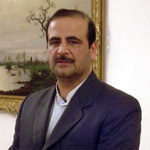Iran and UAE Should Rebuild Mutual Trust

However, a one-size-fits-all framework couldn’t be used for the analysis of Persian Gulf Arab states’ behavior towards Iran. The impact of West and Saudi Arabia is more conspicuous when we look at the policies of countries such as Kuwait and UAE’s towards Iran. The recent remarks by UAE’s Foreign Minister (that his country respects any UN sanctions against Iran) are in line with Riyadh’s regional diplomacy. Unfortunately, he United Arab Emirates has never ceased the strategically erroneous policy of taking advantage from the tensions between Iran and West.
The reality is that United States and Israel are running a tenacious Iranophobia campaign in Middle East, which will most likely bear fruits in Iran’s immediate proxy, i.e. the Persian Gulf region and its Arab states. When Saudi Arabia and UAE’s problems with Iran go beyond its nuclear program (in cases as competition over regional leadership or disputes over triple islands in the Persian Gulf) the key winner is West, which floods Middle East with its arms.
Looking in broad scale, tension between Iran and Arab states does not benefit the national interests of any party. Iran should do its best to curb the spread of anti-Iranian sentiments among Arab governments, since the trans-Persian Gulf ties are of utmost importance for stability of the region. Prudent remarks and diplomatic measures are a must in stopping any third party from interfering in regional affairs.
Iran should especially take steps towards defusing tension and building mutual trust with United Arab Emirates in order to stop any further detriments against its national interests. Abu Dhabi should also understand that its tensions with Tehran merely benefit other countries. A long shared history and common interests between Persian Gulf states should not be sacrificed due to provocations of extraregional forces.

